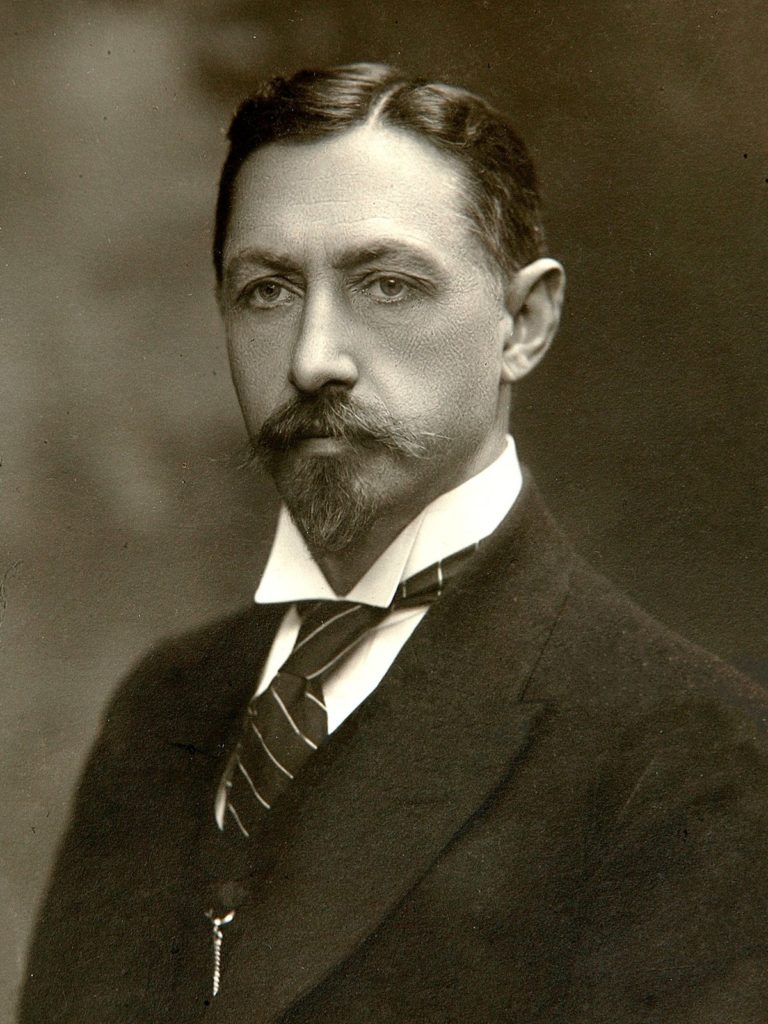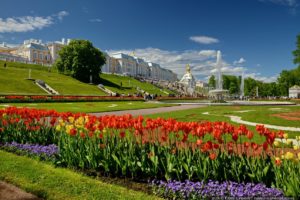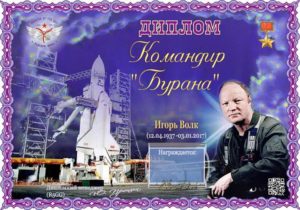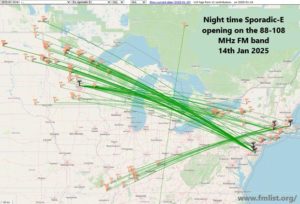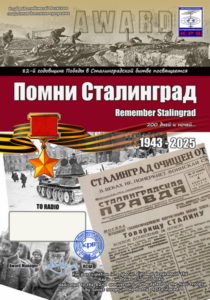Activity days of radio amateurs of Orel and Lipetsk regions 22 October 2020
October 22, 2020, marks the 150th anniversary of Ivan Alexeevich Bunin, Russian writer, poet and translator, Nobel Prize winner in literature.
In honor of this date, Orlovsky and Lipetsk RO SRR from 12 to 31 October 2020 held days of activity of radio amateurs and established an anniversary diploma, posted at HAMLOG.RU.
Ivan Alexeevich Bunin was born on October 22, 1870, in Voronezh to a noble family. Childhood of the future writer spent at the farm Butyrki Yeletsky County, Orlov Province.
In 1881 Ivan Bunin entered Eletsk Gymnasium, but he studied only five years, as the family had no money. His elder brother Julius (1857-1921) helped him to master the gymnasium program.
Bunin wrote his first poem at the age of eight.
His first publication was the poem “Above Nadson’s Tomb,” which was printed in the newspaper “Motherland” in February 1887. During the year, several poems by Bunin appeared in the same edition, as well as stories “Two Wanderers” and “Nefedka”.
In September 1888, Bunin’s poems appeared in the “Books of the Week”, which published works by writers Leo Tolstoy, James Polonsky.
From the spring of 1889 began the independent life of the writer – Bunin after his brother Julia moved to Kharkov. In autumn, he started working in the newspaper “Orlovsky Vestnik”.
In 1891 in the appendix “The Oryol Bulletin” was published his student book “Poems. 1887-1891”. At the same time, Ivan Bunin got acquainted with Varvara Pashchenko, the proofreader of the newspaper, with which they began to live in a civil marriage without getting married because Varvara’s parents were against this marriage.
In 1892 they moved to Poltava, where their brother Julius was in charge of the statistical bureau of the provincial land. Ivan Bunin entered the service as a librarian of the zemstvo department, and then – as a statistician in the provincial department. At different times he worked as a proofreader, a statistician, a librarian, a newspaper reporter.
In April 1894 Bunin’s first prose work appeared in the press – the story “The Village Sketch” (the name was chosen in the publishing house).
In January 1895, after betraying his wife, Bunin left the service and moved first to St. Petersburg and then to Moscow. In 1898 he married Anna Tsakni, a Greek woman, the daughter of a revolutionary and emigrant Nikolai Tsakni. In 1900 the spouses parted, and in 1905 their son Nikolai died.
In Moscow, a young writer met many famous poets and writers – Anton Chekhov, Valery Brusov. After meeting with Nikolai Teleshov, Bunin became a member of the literary circle “Wednesday”. In the spring of 1899 in Yalta, he met Maxim Gorky, who later invited him to cooperate in the publishing house “Znamenie”.
Literary fame came to Ivan Bunin in 1900 after the story “Antonov’s Apples” was published.
In 1901, the Scorpio Symbolist Publishing House published a collection of poems “Listapad”. For this collection and for the translation of the poem “Song about Gaiavat” (1896) by the American romantic poet Henry Longfellow, the Russian Academy of Sciences awarded Ivan Bunin the Pushkin Prize.
In 1902 the first volume of the writer’s works was published in the “Znanie” publishing house.
In 1906 Bunin got acquainted with Vera Muromtseva, who came from a noble Moscow professor’s family and became his wife. Bunin traveled a lot. In 1907, the young spouses went on a trip to the East – Syria, Egypt, Palestine. In 1910 they visited Europe, and then Egypt and Ceylon. From autumn 1912 to spring 1913 they were in Turkey and Romania, from 1913 to 1914 – in Capri in Italy.
In autumn 1909, the Academy of Sciences awarded Bunin the second Pushkin Prize and elected him Honorary Academician in the category of graceful words.
In the works written after the first Russian revolution in 1905, the theme of dramatism of Russian historical destiny became predominant. The stories “The Village” (1910) and “Sukhodol” (1912) were a great success among readers.
In 1915-1916 collections of the writer’s stories “The Cup of Life” and “The Master from San Francisco” were published. In the prose of these years, the writer’s idea of the tragedy of world life, of doom, and the fratricidal nature of modern civilization is broadened.
Ivan Bunin was extremely hostile to the February and October revolutions of 1917 and perceived them as a disaster. The diary of events in the life of the country and the writer’s reflections at that time was the book of journalism “The Okay Days” (1918).
On May 21, 1918, he left Moscow for Odessa and in February 1920 emigrated first to the Balkans and then to France. In France, he first lived in Paris, but since the summer of 1923, he moved to the Maritime Alps and came to Paris only for some winter months. Here he turned to intimate, lyrical memories of his youth. The novel “The Life of Arsenyev” (1930) as if closed the cycle of artistic autobiographies related to the life of the Russian local nobility. One of the central places in the late works of Bunin occupied the theme of fatal love and passion, expressed in the works “Mitina love” (1925), “Sunstroke” (1927), the cycle of novels “Dark Alleys”. (1943).
In 1927-1930 Bunin turned to the genre of short stories (“Elephant”, “Calf head”, “Cocks”, etc.).
In 1933 he became the first Russian writer to be awarded the Nobel Prize for literature “for his true artistic talent, with which he recreated in fiction prose a typical Russian character.
In 1939, with the beginning of the Second World War (1939-1945), the Bunines settled in the south of France, in Grasse, at Villa Jeannette, and in 1945 returned to Paris.
In the last years of his life, the writer stopped publishing his works. Much and seriously ill, he wrote “Memories” (1950), worked on the book “About Chekhov”, which was published posthumously in 1955 in New York.
In “The Literary Will” he asked to print his works only in the last author’s edition, which formed the basis of his 12-volume collection of works, published by Berlin publishing house “Petropolis” in 1934-1939.
On November 8, 1953, Ivan Bunin died in Paris. He was buried in the Russian cemetery of Saint-Genevieve-de-Bois.
In 1988, the I.A. Bunin Literary and Memorial Museum was opened in Yelets, and in 1991, the Ivan Bunin Literary and Memorial Museum was established in Orel.
In 2004, the annual Bunin literary prize was established in Russia.
If you have found a spelling error, please, notify us by selecting that text and pressing Ctrl+Enter.
